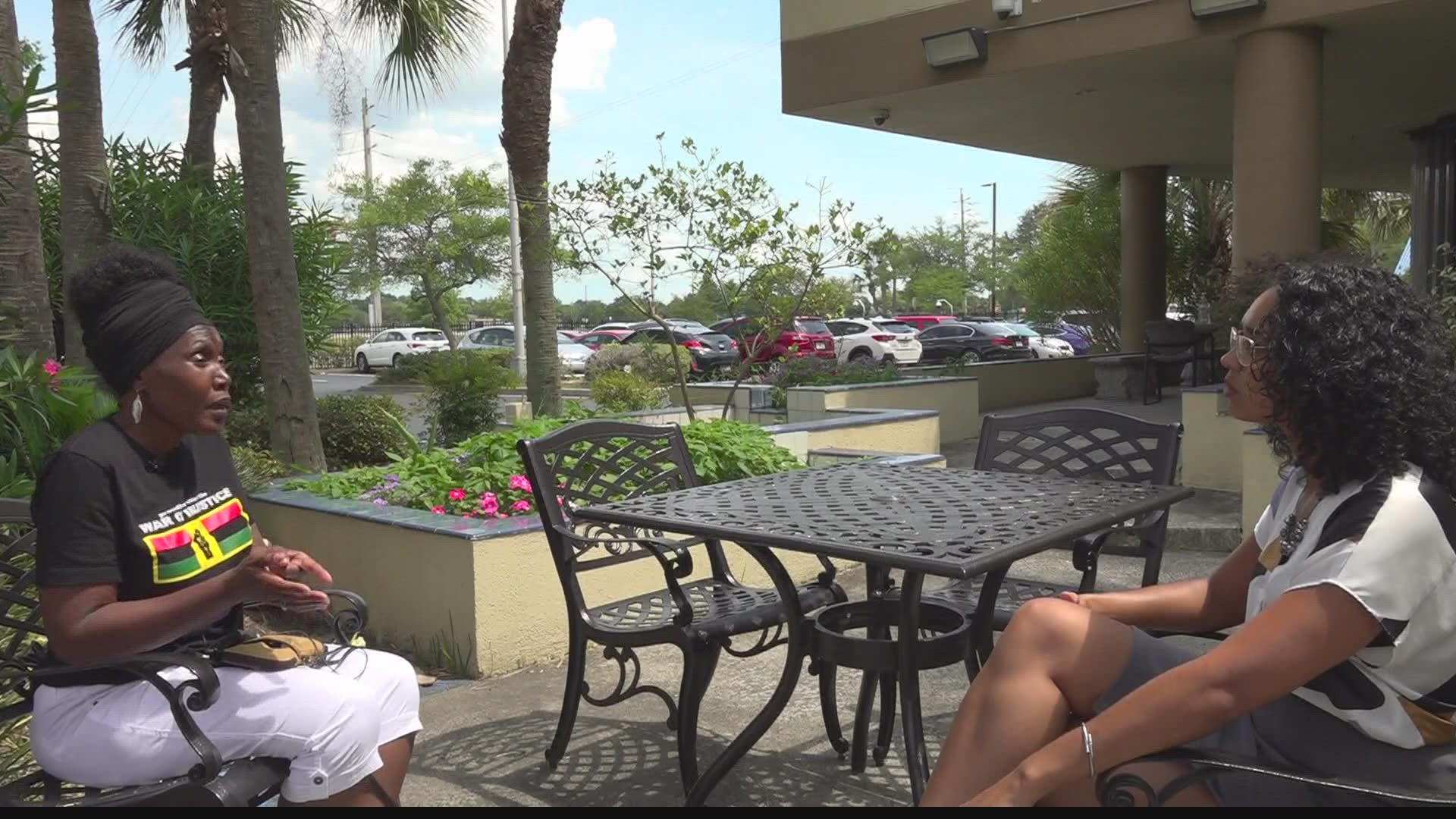JACKSONVILLE, Fla. — The video attached to this story is from a previous, unrelated report.
This story was originally reported by the Florida Times-Union.
Lawyers arguing new boundaries for Jacksonville’s City Council districts are unconstitutionally gerrymandered asked a federal judge Friday to block use of half of the 14 districts during the spring elections.
“This is about equitable representation for all Jacksonville residents,” Nicholas Warren, a staff attorney for the American Civil Liberties Union of Florida, said in written comments about seeking an injunction to prevent the new boundaries being used.
Lawyers representing 10 local residents, the Jacksonville NAACP branch, the Northside Coalition of Jacksonville, the ACLU’s chapter in Northeast Florida and the voting rights group Florida Rising want the injunction as part of a lawsuit filed in May.
The injunction would affect council districts 7, 8, 9 and 10, all majority-Black places where critics argue African-American neighborhoods were “packed” together artificially, removing Black voting power from adjacent districts.
It would also affect council districts 2, 12 and 14, which the lawsuit contends were unnaturally whitened by the packing, as well as School Board districts 4, 5 and 6, whose boundaries are made by combining council districts.
If U.S. District Judge Marcia Morales Howard grants the injunction, new boundaries will have to be developed with the judge’s approval by Dec. 15.
At a hearing this month, Howard was told the Duval County Supervisor of Elections Office needs to know firm district lines by then to prepare for the first round of city elections on March 21, 2023.
Elections officials listed 26 people as active candidates Friday for the council seats the lawsuit involves, but they need to run in the districts where they live. The suit doesn't challenge the legality of the rest of the council districts, but asks the judge to order special elections in the disputed districts if the redistricting fight can't be resolved in time for normal voting.
Howard said this month she’d schedule a hearing on the injunction request in September.
“If you prevail, there still needs to be enough time to come up with a remedy,” she told lawyers for the plaintiffs.
Attorneys for the city will have until Aug. 12 to respond to the injunction request. Howard told the plaintiffs’ lawyers to have a brief about solutions ready by Aug. 5, but said they don’t have to propose new maps by then.
The district lines being challenged now were approved by the council in March, using population data collected in the 2020 census. If they stand, the council lines will be used in the city’s 2027 elections too. Another census will be done in 2030, but it’s doubtful results will be known and new lines drawn before the spring 2031 vote.
The first School Board elections using the new lines aren’t supposed to happen until 2024.
Lawsuit argues map groups Black voters, dilutes their power
The lawsuit says the racially packed districts have populations between 60.6% and 70% Black. By comparison, the 2020 census said 29.4% of Duval County’s population was Black, not including people who were multiracial.
The suit argues that packing a few districts and stripping Black presence from other violated the equal protection clause of the U.S. Constitution’s 14th Amendment. Court cases have said that “communities of interest” should be considered when voting lines are drawn, but that use of race should be “narrowly tailored” when districts are drawn.
The suit argues council members used “communities of interest” as a euphemism to talk about race and ended up loading a few districts with so many Black voters that their influence overall in council elections was depressed.
Filed as a supporting exhibit for the injunction request, a racial breakdown of the districts showed that Districts 7, 8, 9 and 10 accounted for about 165,000 of Duval County's 292,337 Black residents, or 56.6% of the total. The sheet of statistics was one of 82 supporting documents filed Friday.
Included among the documents was a report from a Harvard political scientist and statistician, Kosuke Imai, who used software to generate 10,000 simulated redistricting plans based on Duval County’s census data and normal rules for redistricting legally.
Imai reported that in Jacksonville’s plan, “a disproportionately large number of Black voters are placed into Districts 7, 9, and 10. … As a consequence of this packing of Black voters, Districts 2 and 12 of the enacted plan have much lower BVAP [Black voting age population] proportions than the simulated plans.”
While they’re not common, court fights over race and redistricting have happened in a lot of places and can cast long shadows.
In May, just weeks after the lawsuit over Jacksonville’s redistricting was filed, Howard approved a plan by the city of Starke and the NAACP in Bradford County to redraw five districts used for Starke city commission races. The districts had been set by a court order in 1989 and hadn’t been changed since, although population changes had made the districts “very unequal,” the ACLU said in May.
This story was originally reported by the Florida Times-Union.

